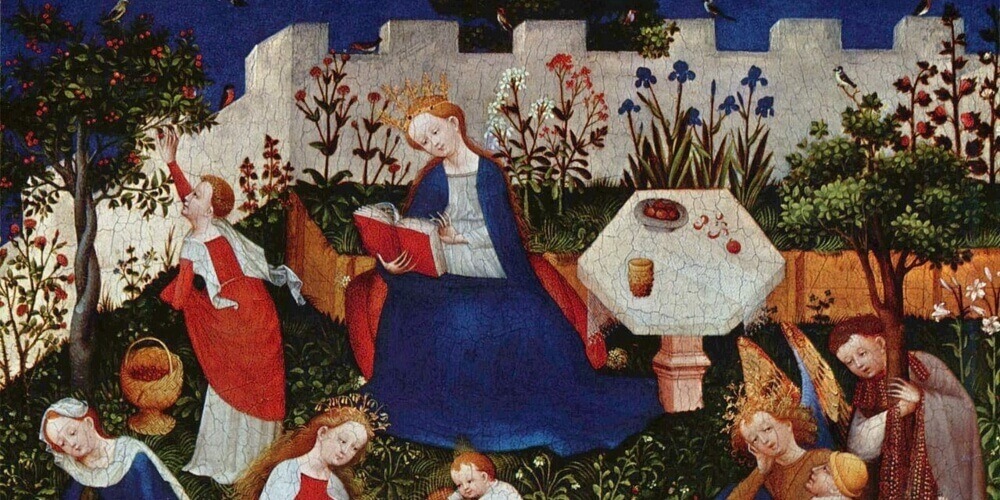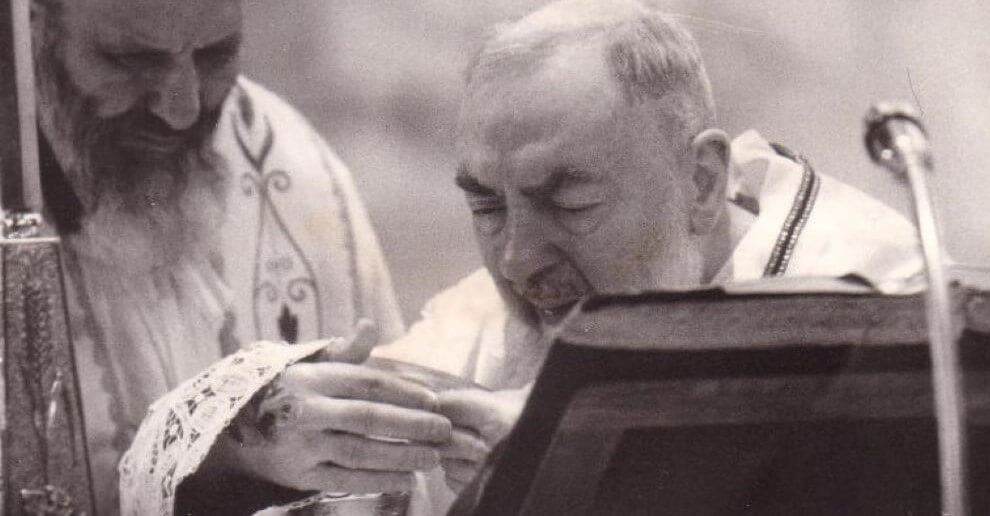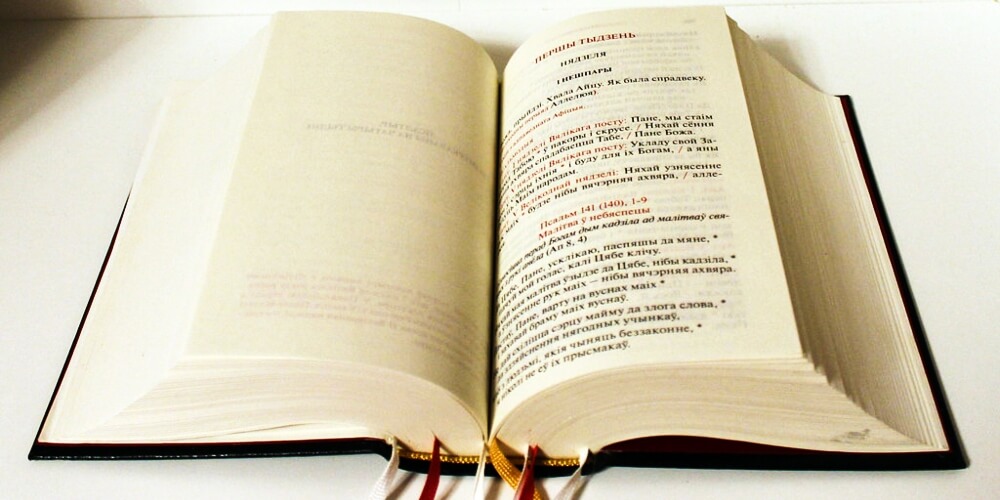
After the Holy Sacrifice of the Mass, the Church’s primary liturgical prayer is the Divine Office, or the “Liturgy of the Hours.” This is the official public prayer of the Church which takes place at regular hours throughout the course of the day. The purpose of the Divine Office is to sanctify the entire day by offering it to the glory of God.
The word “office” means “service”; the Divine Office is the service in which we render continual praise and thanksgiving to our Creator.
Since the divine Master commanded “that we ought always to pray and not to faint,” the Church faithfully fulfills this injunction and never ceases to pray: she urges us in the words of the Apostle of the Gentiles, “by him Jesus let us offer the sacrifice of praise always to God”.
Mediator Dei, Encyclical of Pope Pius XII on the Sacred Liturgy
Praying Throughout the Day
The Divine Office is intimately connected with the Holy Sacrifice of the Mass. Just as the Mass is continuously offered to God all over the world each day, so also is the Divine Office. At every hour of every day these communal prayers of the Church render glory to God and unite us with the saving work of Jesus Christ for the salvation of the world.
What a spectacle for heaven and earth is not the Church in prayer! For centuries without interruption, from midnight to midnight, is repeated on earth the divine psalmody of the inspired canticles; there is no hour of the day that is not hallowed by its special liturgy; there is no stage of life that has not its part in the thanksgiving, praise, supplication and reparation in common use by the mystical body of Christ, which is the Church.
Thus prayer of itself assures the presence of God among men, according to the promise of the divine Redeemer: “Where there are two or three gathered together in my Name, there am I in the midst of them” (Matt.18:20).
Caritate Christi Compulsi, Encyclical of Pope Pius XI
In the Divine Office the Church Militant (which exists in time) unites with the Church Triumphant (which exists in eternity) in unending praise and worship of our Creator.
…the prayer of the Church, closely bound to the rhythms of nature, fills the daily, weekly, and yearly cycles with celebration of the feasts of the Lord and the Mother of God, as well as memorials of the saints.
As they pray, God enters into the time of people’s lives. He places them within salvation history, the heart of which is the mystery of Christ’s [Paschal Mystery].
Catechism of the Ukrainian Catholic Church
The Purpose of the Divine Office
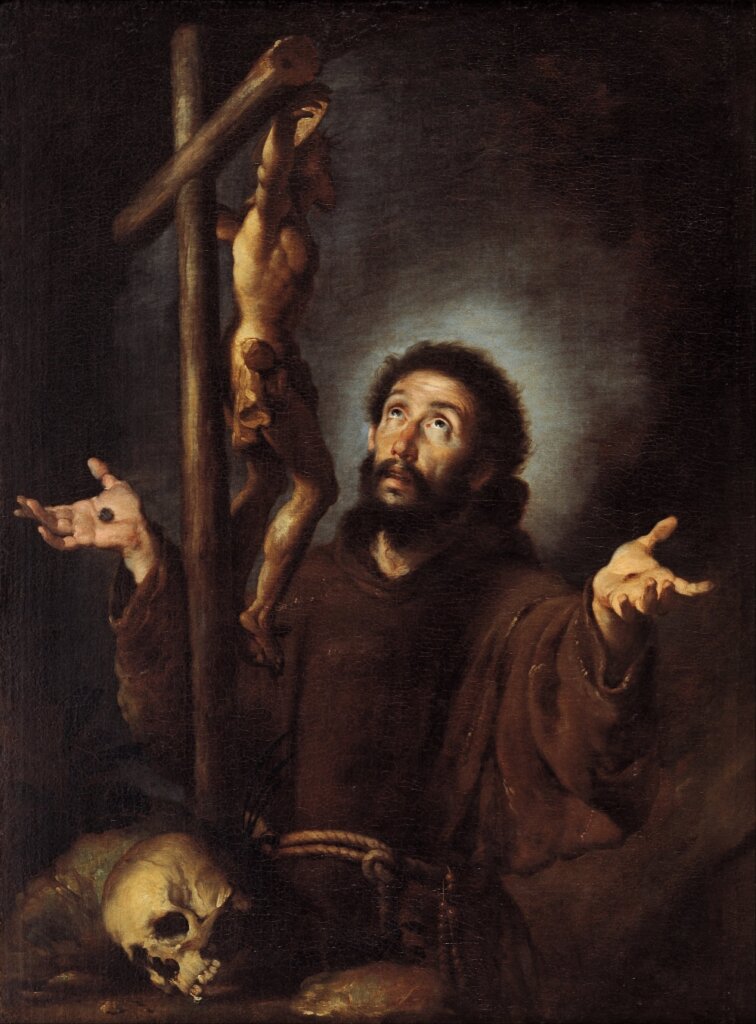
The primary purpose of the Divine Office isn’t our personal sanctification, although that is certainly something to be desired.
Its primary purpose is to praise our Creator who is worthy of all our love, and who finds His “heaven on earth” in the love we bear for Him in our souls. Our sanctification takes place as the Holy Spirit molds us into the image of Christ when we contemplate Him in the prayers of the Divine Office.
[The Divine Office is] a novitiate in which she [the Church] teaches her age-old ways of how to glorify God in Christ as Church, together as one body, in union with and after the example of her head. No other form of prayer is so rooted in the mysteries of salvation history as they are unfolded day by day in the Church’s annual cycle.
Through this constant diet of Sacred Scripture not only does God speak in his Word to us, not only do we contemplate over and over again the central mysteries of salvation, but our own lives are gradually attuned to this rhythm, and we meditate again and again on the history of Israel, recapitulated in Jesus, that is also the saga of our own spiritual odyssey.
Robert Taft, historian
The Divine Office pulls us into the life of the Trinity in a unique way. That’s because the Psalms can be understood as both a Christian’s prayer to God AND the particular prayer between Christ and the Father. Since we cannot pray even one bit without the help of the Holy Spirit—and since all of Scripture is inspired by the Holy Spirit—the Divine Office brings us directly into the Life of the Trinity, which is the exact calling of all Christians.
In other words, we are inspired by the Holy Spirit to pray the words of the Holy Spirit—alongside the Son, and following the example of the Son—in rendering worship and honor to the Father.
History of the Divine Office
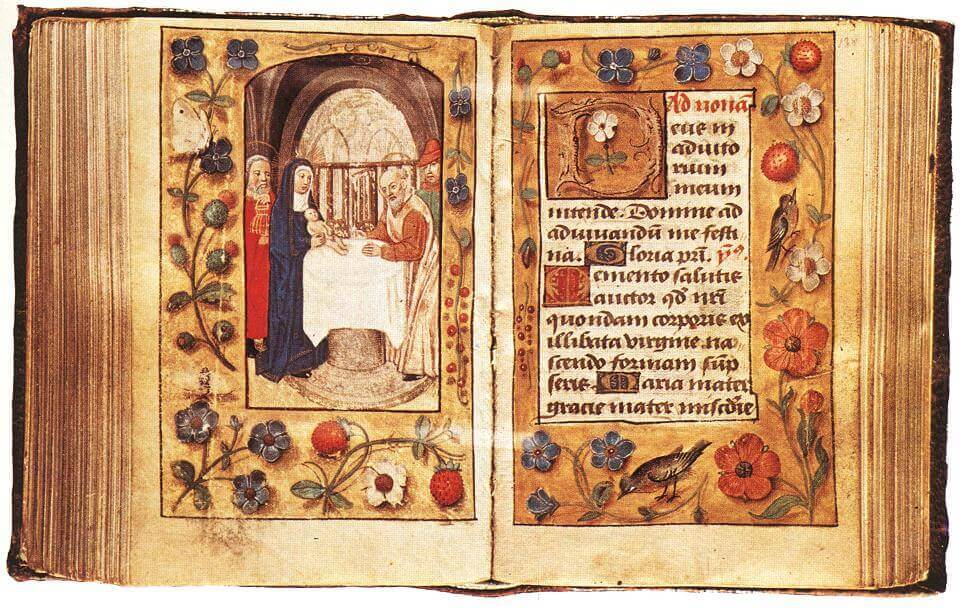
The Divine Office is primarily composed of the Book of Psalms. That means that its liturgical roots are in ancient Israel, when the true worshippers of God would pray and recite the Psalms of King David at specific times of the day.
Pope Pius XII recounts how the Liturgy of the Hours developed based, in part, on the Jewish tradition:
…in different parts of the Christian world the practice arose of setting aside special times for praying, as for example, the last hour of the day when evening set in and the lamps were lighted; or the first, heralded, when the night was coming to an end, by the crowing of the cock and the rising of the morning star. Other times of the day, as being more suitable for prayer are indicated in Sacred Scripture, in Hebrew customs or in keeping with the practice of every-day life.
According to the acts of the Apostles, the disciples of Jesus Christ all came together to pray at the third hour, when they were all filled with the Holy Ghost; and before eating, the Prince of the Apostles went up to the higher parts of the house to pray, about the sixth hour; Peter and John “went up into the Temple at the ninth hour of prayer” and at “midnight Paul and Silas praying . . . praised God.”
Thanks to the work of the monks and those who practice asceticism, these various prayers in the course of time become ever more perfected and by the authority of the Church are gradually incorporated into the sacred liturgy.
Mediator Dei, Encyclical of Pope Pius XII on the Sacred Liturgy
Honoring the Hours of Christ’s Passion
While rooted in ancient Jewish practice, the instructional writings of St. Hippolytus of Rome (dating to 215 A.D.) also show us that each of the Hours occurred at their set places to honor the timing of the events of Christ’s Passion.
The 1st Hour (Prime – now considered part of Lauds) or 6 am:
“Let every faithful man and every faithful woman, when they rise from sleep at dawn, before they undertake any work, wash their hands and pray to God. Then they may go to work.”
The 3rd Hour (Terce), or 9 am:
“If you are at home, pray at the third hour and praise God. If you are elsewhere at that time, pray in your heart to God. For in this hour Christ was seen nailed to the wood.”
The 6th Hour (Sext), or 12 pm:
“Pray also at the sixth hour. Because when Christ was attached to the wood of the cross, the daylight ceased and became darkness. Thus you should pray a powerful prayer at this hour, imitating the cry of him who prayed and all creation was made dark…”
The 9th Hour (None), or 3 pm:
“Pray also at the ninth hour a great prayer with great praise…For in that hour Christ was pierced in his side, pouring out water and blood…”
Evening Prayer (Vespers), or 6 pm / Night Prayer (Compline), or 9 pm
“Pray also before your body rests on your bed.”
Midnight Prayer (Matins), or 12 am:
“Around midnight rise and wash your hands with water and pray. If you are married, pray together. …For those elders who handed down the tradition to us taught us that in this hour every creature hushes for a brief moment to praise the Lord. Stars and trees and waters stand still for an instant. All the host of angels serving him, together with the souls of the righteous, praise God. This is why it is important that all those who believe make certain to pray at that hour. Testifying to this, the Lord says thus, ‘Behold, a cry was made at midnight, saying, ‘Behold the bridegroom is coming! Arise to meet him!’” And he adds, saying, “Watch, therefore, for you do not know when the hour is coming.”
Morning Prayer (Lauds), or 3 am:
“Likewise, at the hour of the cock-crow, rise and pray. Because at this hour, with the cock-crow, the children of Israel refused Christ, who we know through faith, hoping daily in the hope of eternal light in the resurrection of the dead.
With these things, all you faithful, if you do and remember them, instructing one another, and encouraging the catechumens, you will not be able to be tempted or to perish, having Christ always in your thoughts.”
St. Hippolytus of Rome
Thus we see that each of the set Hours was intended to give us points of departure for contemplating the life of Our Lord throughout the course of the day. Because of this, our daily duties can be sanctified and offered to God as an act of worship.
By these suitable ways and methods in which the liturgy at stated times proposes the life of Jesus Christ for our meditation, the Church gives us examples to imitate, points out treasures of sanctity for us to make our own, since it is fitting that the mind believes what the lips sing, and that what the mind believes should be practiced in public and private life.
Mediator Dei, Encyclical of Pope Pius XII on the Sacred Liturgy
The Holy Spirit Teaches Us to Pray Through the Divine Office
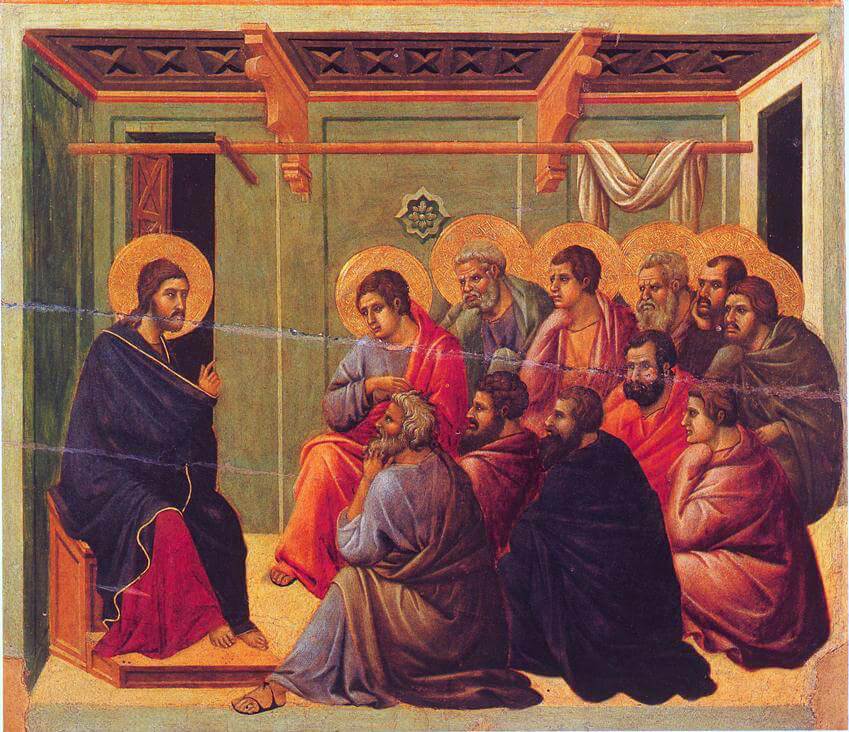
There is much to be learned from the rhythmic cycle of the Divine Office and the prayers it contains. Like the other forms of sacred liturgy inspired by the Holy Spirit, Who is our Divine Instructor, the Divine Office is our “school of prayer.”
A child learns to write by copying the shape of the letters the teacher has carefully written out. The teacher writes a line and underneath the child copies the example of the teacher. That is precisely how we learn to pray, how we come to know God.
The Holy Spirit is our teacher. We learn to pray by taking the prayers inspired by the Spirit and copying them, following the movement of the Spirit with the mind and heart. This is the fundamental principle of the Divine Office.
The Office sets before us the prayers inspired by the Spirit in the psalms and canticles of Scripture, in the prayers of the saints and the Church’s liturgy. As we take these prayers and copy them, with concentration of mind and heart, the same Spirit who inspired these prayers will inspire us to pray. The Spirit will teach us to pray.
John Brook, The School of Prayer
Why Should We Pray the Divine Office?
Each time we pray the Divine Office, we join a great choir that is praising God every hour of every day throughout the world. We unite our voices with the praise of the angels and saints in heaven.
Those who have consecrated their lives to God by taking religious vows or Holy Orders are obligated to pray the Divine Office as part of their vocation. These souls have the sacred duty of allowing the Divine Office to mold and deepen their Catholic faith. This enables them to pray more effectively on behalf of all the faithful.
For the Liturgy is indeed a sacred thing, since by it we are raised to God and united to Him, thereby professing our faith and our deep obligation to Him for the benefits we have received and the help of which we stand in constant need. There is thus a close connection between dogma and the sacred Liturgy, and between Christian worship and the sanctification of the faithful.
Hence Pope Celestine I saw the standard of faith expressed in the sacred formulae of the Liturgy. “The rule of our faith”, he says, “is indicated by the law of our worship. When those who are set over the Christian people fulfill the function committed to them, they plead the cause of the human race in the sight of God’s clemency, and pray and supplicate in conjunction with the whole Church”.
These public prayers, called at first “the work of God” and later “the divine office” or the daily “debt” which man owes to God, used to be offered both day and night in the presence of a great concourse of the faithful.
Divini Cultus, On Divine Worship, Pope Pius XI
While the laity are not obligated to pray the Liturgy of the Hours, the Church strongly encourages them to join in the daily prayers of the Church as lay Christians have done from antiquity.
Lay groups gathering for prayer, apostolic work, or any other reason are encouraged to fulfill the Church’s duty, by celebrating part of the liturgy of the hours. The laity must learn above all how in the liturgy they are adoring God the Father in spirit and in truth; they should bear in mind that through public worship and prayer they reach all humanity and can contribute significantly to the salvation of the whole world.
… it is of great advantage for the family, the domestic sanctuary of the Church, not only to pray together to God but also to celebrate some parts of the liturgy of the hours as occasion offers, in order to enter more deeply into the life of the Church.
General Instruction of the Liturgy of the Hours, Congregation for Divine Worship
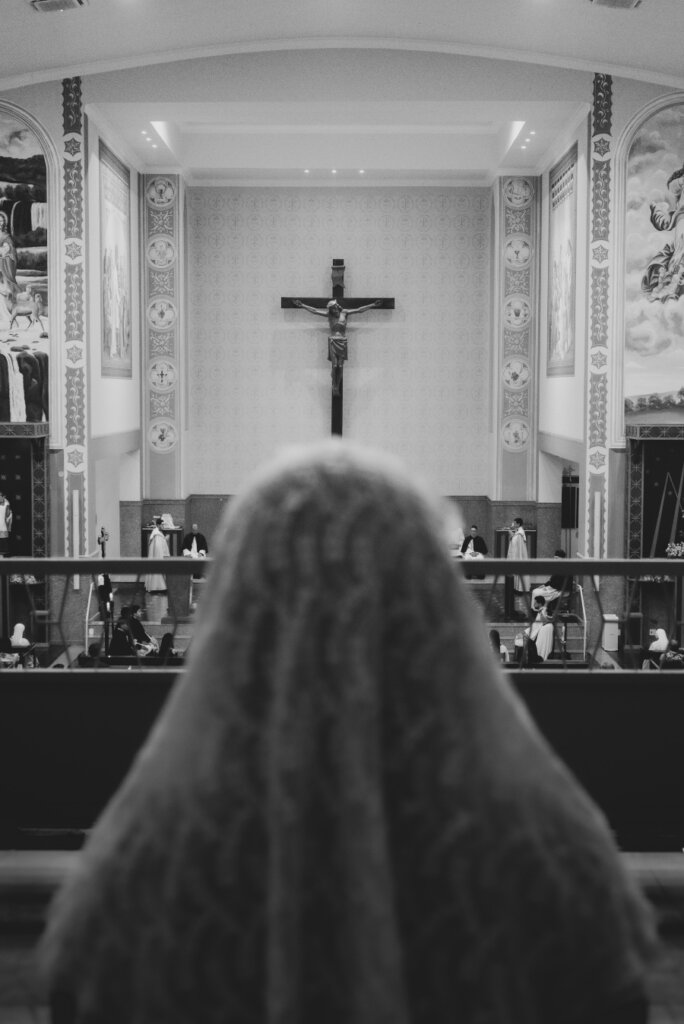
The more Christian souls pray the Liturgy of the Hours, the better, because through the liturgy we participate in the saving work of Jesus Christ. In this way the laity can join the Church in praying for their own salvation and that of their family and loved ones, as well as for their nation and the whole world.
Saint Cyprian teaches: “When we pray, we pray not only for ourselves but for the entire people, because we all are one people … Christ himself, our teacher and master, desired that each would pray for all, as he, having gathered all within himself, brought them to the Father.”
For something for themselves or for others, become the voice of their neighbour. The basis of this prayer is the common partaking of Christians in Christ’s priesthood, for the sanctification of the world. You, beloved, build yourselves up on your most holy faith; pray in the Holy Spirit. (Jude 1:20)
Catechism of the Ukrainian Catholic Church
Since the laity have no obligation to pray the Divine Office, freely undertaking this holy service and offering it for the sanctification of our neighbor will undoubtedly be doubly meritorious in God’s sight.
How to Pray the Divine Office
The Divine Office is prayed with a breviary, or the book that contains the prayers of the Liturgy of the Hours. In its complete form, the breviary is available in four volumes. It is also available in abbreviated forms for the laity which contain only the major Hours. It is recommended that the laity pray Morning Prayer (Lauds) and Evening Prayer (Vespers).
By the venerable tradition of the universal Church, lauds as morning prayer and vespers as evening prayer are the two hinges on which the daily office turns; hence they are to be considered as the chief hours and celebrated as such. … Morning prayer and evening prayer are therefore to be accorded the highest importance as the prayer of the Christian community. … Indeed, the recitation of these hours should be recommended also to individual members of the faithful unable to take part in a celebration in common.
General Instruction of the Liturgy of the Hours, Congregation for Divine Worship
A Guide to Praying the Liturgy of the Hours
If you have been inspired to incorporate the Liturgy of the Hours into your prayer life, you will find a helpful video guide below. The transcript for this series, which you can print out, can be found under the “resources” tab in the top-left corner of this series.
For those who are new to praying the Divine Office, here are a few helpful tips to ensure your success:
- Start simple. Choose one of the hours and aim for consistency in praying this hour. For example, pray Lauds (Morning Prayer) every day for a month before attempting to add another hour.
- Don’t begin by praying all the hours at once, or by picking an hour that is impractical for your schedule.
- If things are going well and you would like to do more, add Vespers (Evening Prayer) to your daily routine. Continue to pray both Lauds and Vespers for an additional month. This may be enough for you, but, if you would like to add more, pray the Office of Readings and/or Compline as well.
- The important thing is to develop a prayer habit that you can maintain while still attending to the duties of your state in life.
Are you interested in purchasing your own copies of the Liturgy of the Hours? Find breviaries here.
This article is an excerpt from the online series School of Prayer, a powerful devotional course created for individual Catholics who want to enrich their prayer life. You can learn more and sign up here.
Have you ever prayed the Divine Office before? Alone, or in community? What was it like?
Share your thoughts in the comments below!


